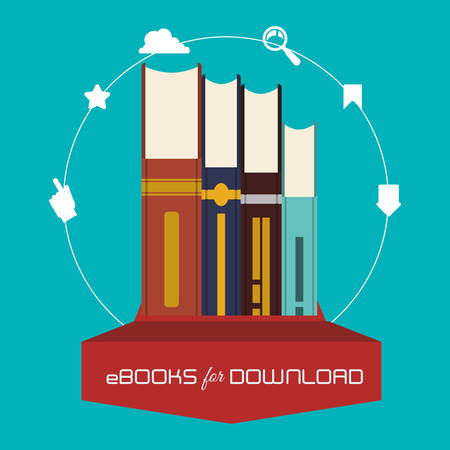Understanding the Major Arcana: A Brief Overview
The Major Arcana stands as the heart of any Tarot deck, comprising 22 cards that are steeped in symbolism and mystery. For centuries, these cards have intrigued scholars, artists, and seekers alike. In the context of British culture, their roots can be traced back to the Victorian fascination with mysticism and the occult—a time when salons from London to Edinburgh would host Tarot readings as both social entertainment and spiritual exploration. Each card, from The Fool’s leap of faith to The World’s sense of completion, offers a narrative that resonates with life’s universal journeys. Over the years, the Major Arcana has woven itself into the fabric of British cultural consciousness; references appear in literature, film, and even modern music. Today, whether found in a hip East London café or an ancient Cornish stone circle, these cards continue to spark curiosity about fate and free will. Their enduring relevance lies not just in fortune-telling but in providing symbolic mirrors through which individuals across the UK reflect on their choices, challenges, and aspirations.
Tarot in Modern Britain: From Taboo to Trend
The landscape of tarot readings in Britain has shifted dramatically over the past decades. Once relegated to the fringes, associated with secrecy and suspicion, tarot has now found its way into the very heart of British culture. This transformation is not merely a matter of changing tastes—it reflects broader shifts in social attitudes, spiritual curiosity, and a collective quest for meaning in an increasingly complex world.
Subcultural Roots and Mainstream Emergence
Historically, tarot was woven into British subcultures—from esoteric circles in Bloomsbury to punk gatherings in Camden. These groups cherished tarot as a tool for self-exploration and rebellion against rigid norms. Today, however, tarot cards are as likely to be spotted on a trendy Shoreditch coffee table as at a Glastonbury festival stall. The shift from underground mystique to mainstream fascination is palpable.
To illustrate this evolution, consider the following:
| Era | Public Perception | Main Users | Cultural Placement |
|---|---|---|---|
| Pre-1980s | Taboo/Superstition | Occultists, Mystics | Secret Societies, Alternative Circles |
| 1990s-2000s | Cautious Curiosity | Youth Subcultures, New Agers | Bookshops, Counterculture Events |
| 2010s-Present | Trendy/Wellness-Oriented | Millennials, Urban Professionals | Mainstream Media, Social Gatherings |
Mainstream Acceptance: A Reflection of Modern Values?
This mainstreaming of tarot is particularly noticeable in urban centres like London, Manchester and Edinburgh. Here, Major Arcana readings have become more than fortune-telling—they’re seen as frameworks for decision-making and tools for personal growth. High street shops stock beautifully illustrated decks; local pubs host tarot nights; even corporate wellness programmes occasionally feature tarot workshops.
The acceptance of tarot in British society signals a blending of tradition with modernity—where ancient archetypes meet contemporary concerns about identity, purpose, and well-being. In essence, Major Arcana readings have moved from being whispered secrets to conversation starters across the UK’s diverse social spectrum.

3. Interpreting the Cards: Personal Growth and Decision-Making
Across the UK, from the bustling streets of London to the quiet corners of rural Wales, Major Arcana readings have found their way into the lives of people seeking clarity and direction. These tarot cards serve as more than just mystical symbols; for many Brits, they offer a reflective mirror for self-exploration. When faced with pivotal moments—be it a career crossroads, a relationship dilemma, or the challenge of moving cities—individuals often turn to the wisdom of the Major Arcana for guidance.
Self-Reflection in Everyday Life
Britons are increasingly embracing tarot as a tool for mindful living. Drawing cards such as The Hermit or The High Priestess encourages introspection, inviting users to pause and consider their internal motivations before making decisions. This practice is not confined to those who frequent alternative shops in Brighton or Glastonbury; even professionals in Manchester or Edinburgh have admitted to using tarot spreads to make sense of complex emotions or ambitions.
Navigating Career Choices
In a rapidly shifting job market, especially post-pandemic, career uncertainty has become a national talking point. It’s not uncommon for individuals weighing up a career change or contemplating a leap into self-employment to consult the Major Arcana. Cards like The Chariot or The Emperor often prompt reflection on leadership potential and drive, while The Fool might encourage someone to embrace new opportunities despite the risk. Such readings provide both reassurance and challenge, nudging people towards choices that align with their authentic selves.
Supporting Life Transitions
Major Arcana readings also play a role during significant life transitions—whether it’s navigating parenthood, retiring, or starting anew after divorce. The Death card, so often misunderstood, is interpreted by many UK readers as a sign of transformation rather than literal endings. This perspective helps individuals across generations reframe change as an opportunity for growth. Whether discussed over tea with friends in Leeds or explored privately at home in Glasgow, these insights foster resilience and adaptability in facing life’s inevitable shifts.
4. Communities and Collectives: The Role of Tarot in UK Social Spaces
Across the UK, Major Arcana readings have found a vibrant home not just in private consultations but within group settings where social connection flourishes. From the bustling energy of city-based workshops to the intimate circles of local community centres and even expansive digital platforms, tarot is thriving as a collective experience. These gatherings foster an environment where insight from the cards is both shared and amplified, encouraging individuals to reflect on life choices alongside others who bring diverse perspectives.
Group Settings for Tarot Practice
| Setting | Description | Typical Participants |
|---|---|---|
| Workshops | Hands-on sessions often led by experienced readers or spiritual practitioners, focusing on interpreting Major Arcana in everyday contexts. | Enthusiasts, beginners, personal growth seekers |
| Community Events | Local fairs, library meetups, or charity events where tarot readings are offered as part of broader wellness or cultural activities. | General public, families, curious newcomers |
| Online Forums | Digital communities such as Facebook groups, Reddit threads, or Zoom meetups that connect people from Cornwall to Inverness. | Younger audiences, tech-savvy users, geographically dispersed participants |
The Power of Shared Interpretation
One distinct feature of UK tarot collectives is the collaborative approach to card interpretation. Rather than relying solely on one readers perspective, group members often contribute their own insights—layering traditional meanings with contemporary British experiences. This cross-pollination can lead to surprising revelations about career changes, relationships, or personal growth paths relevant to modern life across the country.
Digital Expansion and Inclusivity
The rise of online tarot forums has made participation more accessible than ever. People from rural Wales to bustling London boroughs can join live readings or asynchronous discussions, breaking down barriers of distance and background. This inclusivity ensures that guidance from the Major Arcana resonates with a broad spectrum of British society—reflecting regional diversity while nurturing a sense of national community.
In summary, whether through face-to-face gatherings or online networks, the collective practice of tarot enables Britons to exchange wisdom and support each other’s journeys. In these spaces, the age-old symbolism of the Major Arcana continues to inform—and transform—the way modern UK communities approach decision-making and self-discovery.
5. Scepticism vs. Spirituality: Navigating British Perspectives
When it comes to Major Arcana tarot readings and their influence on life choices, the UK presents a fascinating landscape of attitudes shaped by both tradition and modernity. There is an unmistakable current of scepticism running through much of British society, with many regarding tarot as little more than entertainment or a quirky pastime. This pragmatic viewpoint often stems from a wider cultural inclination towards rationality and empiricism—a legacy of the Enlightenment that remains strong in regions such as the South East and among older generations.
However, this scepticism is not universal. Across cities like Bristol, Brighton, and Glasgow, there has been a noticeable rise in open-mindedness towards spiritual practices, including tarot readings. Younger generations, particularly Millennials and Gen Z, are increasingly willing to explore alternative forms of guidance as they navigate the complexities of modern life. For these individuals, Major Arcana readings represent not just mystical insight but also a tool for self-reflection and personal growth—an approach that dovetails neatly with contemporary wellness trends prevalent in urban centres.
Regional differences also play a significant role in shaping attitudes. In some parts of Northern England and Scotland, where folklore and local legends are woven into the cultural fabric, tarot is sometimes viewed with a sense of curiosity or even quiet reverence. In contrast, the more conservative Midlands or rural communities may approach tarot with greater suspicion or indifference, reflecting a preference for established religious or secular worldviews.
Interestingly, these contrasting attitudes can coexist within families or social circles, prompting lively debates about fate versus free will and the validity of seeking answers in the cards. While some Britons dismiss tarot as “mumbo jumbo,” others see it as a legitimate means of tapping into subconscious wisdom—sometimes even blending both perspectives depending on context or company.
Ultimately, whether met with sceptical humour or genuine intrigue, Major Arcana readings continue to spark conversations about belief, identity, and decision-making across the UK. This interplay between doubt and faith ensures that tarot remains both a mirror to Britain’s diverse cultural psyche and a catalyst for ongoing dialogue about how we shape our futures.
6. Conclusion: Fusing Tradition with Contemporary British Life
The enduring appeal of Major Arcana readings in the UK is a testament to their unique ability to bridge time-honoured wisdom with the ever-evolving realities of modern living. In cities like London and Manchester, as well as in the quieter corners of the countryside, Britons from all walks of life continue to turn to tarot not simply out of curiosity, but for genuine insight amid uncertainty. The cards serve as both mirror and compass—reflecting individual journeys and guiding choices in a world that can often feel both exhilarating and overwhelming.
As British society grows increasingly diverse and dynamic, Major Arcana readings have adapted accordingly. Today’s practitioners and enthusiasts aren’t bound by rigid tradition; instead, they blend ancient archetypes with distinctly British sensibilities—think dry humour, pragmatic optimism, and a respect for personal privacy. Whether facing career crossroads in bustling city offices or navigating relationships in close-knit village communities, people find that the archetypal stories within the cards remain uncannily relevant.
This cultural fusion is especially evident in how tarot readings are discussed over coffee in independent cafes, incorporated into mindfulness workshops, or even featured at local festivals across the UK. The conversations sparked by a single card draw often lead to deeper self-reflection and communal connection, weaving the mystical into the everyday fabric of British life.
Ultimately, Major Arcana readings offer more than predictions—they encourage active participation in shaping one’s future. They invite individuals to reflect on their values, question assumptions, and make mindful decisions while honouring both personal intuition and collective heritage. In this way, tarot becomes less about fate and more about empowerment—a dialogue between timeless symbolism and contemporary experience.
As the UK continues to navigate change—socially, politically, and culturally—the Major Arcana endures as a trusted companion on the journey. It reminds us that while circumstances shift, our need for meaning, guidance, and a touch of magic remains constant. By integrating tradition with modern perspectives, Britons are not only keeping the practice alive but reshaping it for generations to come.


